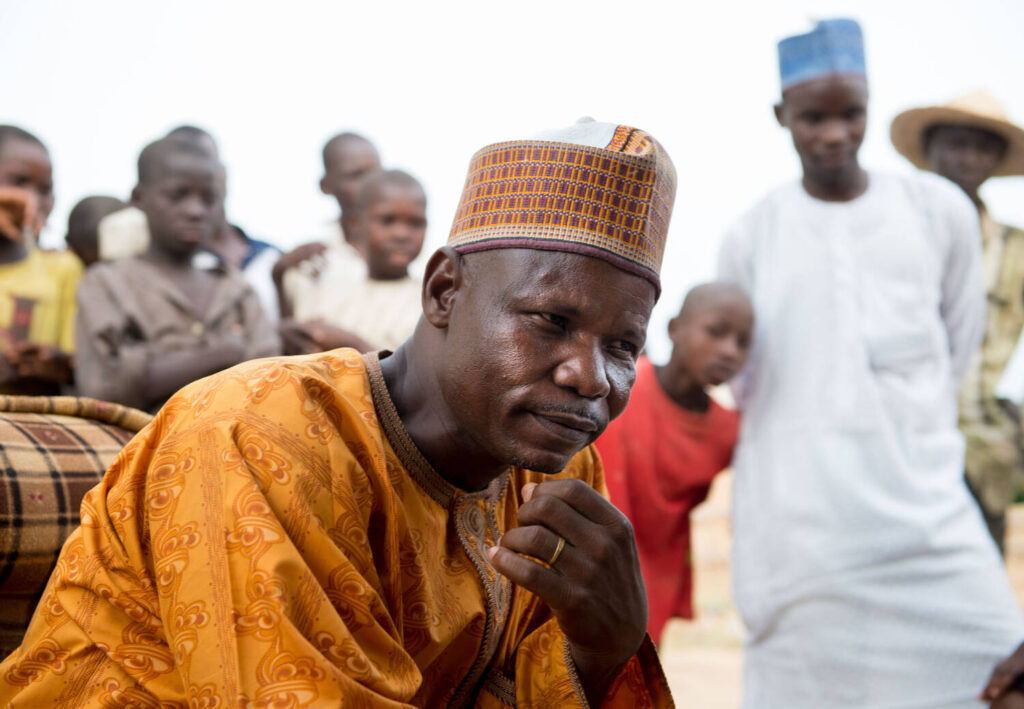
Faith, to many people, is foundational to who we are, our values, and what decisions we make. Around the globe, many look to religious leaders for direction about how to live our lives. This is especially true in many of the communities where MSI works.
Religious leaders are often trusted sources of information and politically influential. Across the African continent, research has found that people are more likely to trust religious than political leaders, and 95% of the population identify with a religion. It’s clear why engaging with religious leaders on sexual and reproductive health and rights is key to reaching people who need our services and creating lasting change.
It’s common to think religion is inherently anti-choice, that all religious leaders are against contraception and abortion, but that’s not the case. In recent years we’ve seen the deeply Catholic countries of Ireland and Mexico legalise abortion, and across the Islamic world, we’re seeing increasing support for reproductive healthcare to better protect women’s health.
MSI works with lots of pro-choice religious groups and leaders, mainly from Christian and Islamic faiths as they’re most common in the countries where we work. There are two ways these partnerships are expanding reproductive choice:
- religious leaders help educate individuals on how contraception or abortion can save their lives and support their futures; and
- they’re advocating for sexual and reproductive health and rights at the political and systemic level.
Religious leaders help to educate communities and break taboo
“We work with MSI to make the Muslim community aware that Islam is not against family planning. It’s our role as leaders to educate community members to make informed choices on matters relating to their health and well-being.”
– Fousseini Doumbia (Religious Leader, Mali)
People’s communities of faith are formative in their beliefs about reproductive healthcare and whether they seek services. MSI’s teams are helping religious leaders to dispel the myths around contraception, and they’re taking that message directly to their communities, helping families understand how to use and access contraception and support. It’s giving people the information they need, and the choice.
So, how do we find common ground with faith leaders? MSI’s team members are empowered with guidance on Islamic and Christian teachings, helping us use scriptures to counter some of the prevailing misinformation and present alternate interpretations. For example, we can invoke principles of human dignity, helping people in need, family values, speaking out for rights and social justice, and the fostering of health.
We look at the whole picture — not all attitudes or beliefs are based solely on religious scripture, but culture, social norms and politics can all be influenced by it. Ultimately, women in their communities are dying from unsafe abortions, and it’s the most marginalised and underserved that bear the brunt. Our approach to faith leaders helps them understand that this is a public health issue, an equity issue, and requires compassion.
Our local teams develop partnerships with religious leaders: meeting one-on-one to slowly build respect and trust, raising awareness at church and mosque events, and building their capacity to educate people through community meetings and individual counselling.
In many cases, these leaders have become allies of MSI and have started promoting reproductive healthcare in their own communities. MSI Nigeria worked closely with the Serkin Yakin (a general or ‘great man of valour’) who is an outspoken religious and traditional leader, building his knowledge of the benefits of contraception. He then worked with an inter-faith coalition to clarify the prevailing myths and misconceptions, and opened up space for community dialogue. The community were reassured that he was not opposed to reproductive healthcare, and felt supported to access services.
Religious leaders help us advocate for reproductive rights and political change
“There’s a lot of folks who are pro-choice or support reproductive dignity and freedom because of their faith and not in spite of it.”
– Rev. Katey Zeh, Baptist Minister, CEO of the Religious Coalition for Reproductive Choice
Religious leaders can be seen as arbiters of morality and ethics; in many contexts they’re powerful when it comes to local and national politics and decision-making. They can help remove barriers against reproductive healthcare and get buy-in from other stakeholders.
It’s essential that we engage religious leaders in this work. So that’s exactly what MSI is doing.
MSI’s Malawi country programme is at the forefront of this work. In Malawi, abortion is only permitted when a woman’s life is at risk (one of the world’s most restrictive laws). As we see in all settings where abortion is restricted, women are dying. They’re driven to resort to unsafe abortion — making up a striking 18% of maternal deaths in the country.
In recent years, a draft Termination of Pregnancy Bill proposed to liberalise the law on abortion in Malawi and, unsurprisingly, it’s created deep divides throughout the country. With 98% of Malawians being religious, faith leaders are also thought leaders and can be the biggest influencers of public policy — so engaging with them has become a key strategy.
MSI Malawi (known as Banja La Mtsogolo), together with other members of the Coalition to Prevent Unsafe Abortion, successfully brought together religious and traditional leaders to speak up against unsafe abortion in their communities and churches.
The team organised Values Clarification and Attitudes Transformation (VCAT) events to educate senior religious leaders. This is a useful tool to sensitively challenge attitudes and beliefs. For example, these sessions ask religious leaders to consider how they feel as custodians of their society to see women dying from unsafe abortions, and shares with them testimonials from affected women in their churches. They’ve brought many religious leaders on board — including a previously anti-choice priest and columnist, Reverend Father Steve Likhucha, who now writes positively about abortion rights, has spoken in parliament about the need to reform abortion law, and holds VCATs with MPs. When these learning and sharing sessions are facilitated by a community leader like Reverend Father Steve, they can be even more powerful.
“This work takes time. It’s about seeding messages, slowly chipping away and shifting opinions. I reckon it takes at least 18 months to two years from the first time we contact a religious leader to the point where they are a self-starting champion who actively speaks out for reproductive rights. We partner, support, give them opportunities to learn and build their confidence, time and time again — this work can’t be done with a single workshop.”
– Simeon Thodi, MSI Malawi’s Advocacy Manager
As new champions for choice, some of these religious leaders decided it was time to do more. With MSI Malawi’s support, they formed the Religious Leaders Network for Choice (RLNC) to address abortion stigma from the lens of religion. They’ve developed messaging on how religious doctrine and scripture support the right to abortion, used for community radio discussions, press statements and newspaper opinion pieces. RLNC member Reverend Cliff Nyeka engages frequently with the media and community panels to mobilise public support. And MSI continues to support the network with advocacy skills training; we hear they’re planning a TV debate on the abortion Bill soon!
MSI Malawi estimates they’ve reached 40,000+ community members with pro-choice messaging through their engagement with religious and community leaders, and have empowered 50 faith leaders from the Catholic, Protestant and Islamic faiths to be pro-choice champions.
Beyond Malawi, MSI’s country programmes are learning from each other and engaging religious leaders in their own contexts. MSI Nigeria organised a landmark workshop for religious leaders in collaboration with the Federal Ministry of Health. MSI Tanzania similarly convened the first interfaith workshop with religious leaders to explore the role of religious institutions in advancing reproductive choice. Some are undertaking joint advocacy, some are inviting religious leaders on tours of our programmes and clinics; every bit helps shift attitudes and build relationships.
While the intersection of religion and sexual and reproductive health and rights can be sensitive and complex, the importance and desire to promote and protect health is growing, and faith leaders have a powerful role to play in reaching more people with reproductive choice.
With great diversity in religious discourse, policies and schools of thought, this work is extremely contextual, and we continue to learn from others as we go forward. Our most important learning so far? The need to dedicate long-term resources to working with religious leaders and staying the course. Because there are still many women and girls out there in religious communities who need — and deserve — reproductive choice.








